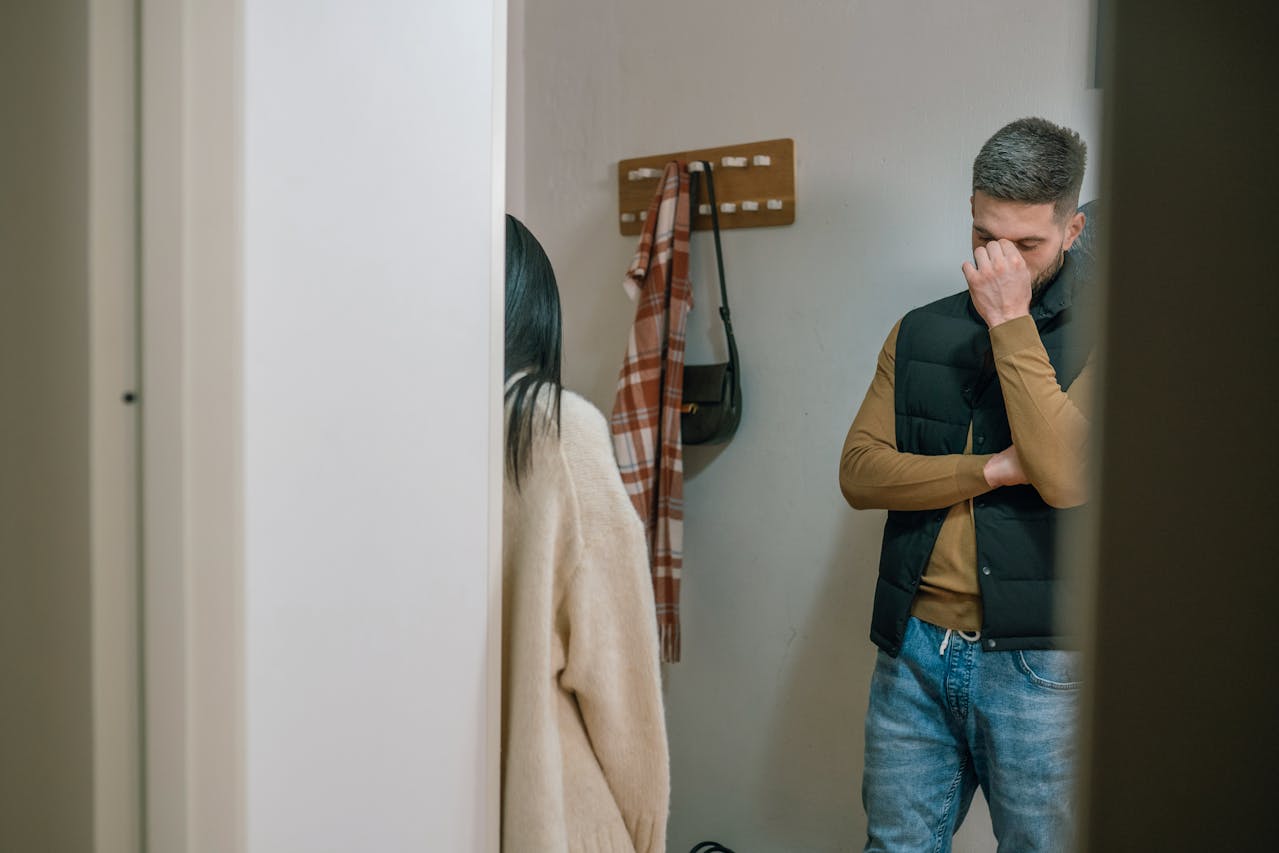Coping with loss is a constant in life as we get older. There are both minor and significant losses. We can lose our hair, bone density, eyesight, hearing, best friend, and spouse, among other physical traits, abilities, and relationships. Grief, loneliness, and despair can result from these losses.
When we are coping with loss, it’s possible that when we wake up in the morning, we experience an intense sadness that begins before our conscious mind even becomes aware. This sadness serves as a reminder that what happened wasn’t just a bad dream.
Geriatric and aging-related issues
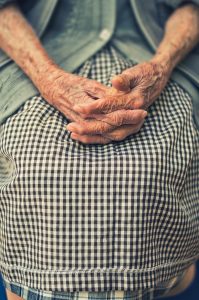 While some adults may eagerly look forward to retirement, grandchildren, or simply a new stage of life as they enter their golden years, others may dread the negative effects of aging on their bodies and minds. If they do encounter physical difficulties that restrict their mobility, it might be challenging for some adults to make the transition to retirement, deal with new frailty or medical conditions, or find enjoyable, fulfilling activities. Santa Clarita Christian Counseling provides compassionate support to help older adults navigate these transitions with grace, purpose, and a renewed sense of hope.
While some adults may eagerly look forward to retirement, grandchildren, or simply a new stage of life as they enter their golden years, others may dread the negative effects of aging on their bodies and minds. If they do encounter physical difficulties that restrict their mobility, it might be challenging for some adults to make the transition to retirement, deal with new frailty or medical conditions, or find enjoyable, fulfilling activities. Santa Clarita Christian Counseling provides compassionate support to help older adults navigate these transitions with grace, purpose, and a renewed sense of hope.
Some older adults may find it difficult to accept their mortality, especially when friends, peers, spouses, or partners pass away. As a result, they may experience isolation after several such deaths. Alzheimer’s disease and other forms of dementia, which affect one in ten Americans of retirement age, may make it difficult for older adults to take care of basic needs.
Some older adults may experience discrimination based on one’s age known as ageism. This practice may result in forced retirement or cause well-meaning family members to disregard an older adult’s preferences or opinions. A United Nations Population Survey found that 43% of people over the age of 60 were concerned about personal violence, and 37% of adults over the age of 60 reported experiencing age discrimination in the previous year.
Only 49% of these adults said they had received respect, meaning that just over half of the adults polled had encountered disrespect. More than half of people over the age of 60 also reported difficulty affording basic services, 66% wished they could work, and 47% said they worried about money always or very often.
Medical concerns with aging
Differentiating between age-related effects that are normal and physical or mental illness symptoms can be difficult for older adults. Numerous seniors continue to lead happy, healthy, independent lives. The majority of older adults will experience some cognitive changes, but this is a typical aspect of aging. According to research, healthy older people frequently experience mild declines in their verbal and visual memory, attention, and mood.
Perceiving loss realistically and positively
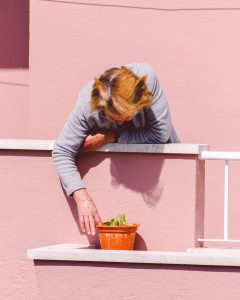
Realistic optimism entails acknowledging and accepting the present – both in our inner and outer worlds – before focusing on the future. Our enthusiasm for life and interest in continuing after a loss can be significantly impacted by viewing life through the prism of realistic positivity.
We become more resilient in the face of loss when we acknowledge that change is a constant theme in life and that change frequently involves loss. For example, a woman had excellent hearing one day, but the next day her left ear completely stopped hearing. No doctor was able to restore it. She mourned her loss, accepting her current situation which is a crucial component of realistic positivity.
After that, the woman realized how amazing the neuroplasticity of the human brain can be. Sounds were rerouted to her right ear by her brain. She realized how little she had valued her hearing when she had it, and she learned never to take anything so seemingly simple for granted again after losing her hearing in one ear.
Sometimes we experience these positive discoveries. Other times we must proactively make up for losses as they happen.
Recovering from a lost career
Losing a job or career can feel devastating, regardless of whether we were laid off, forced to retire, or decided to retire. In the United States, we view our careers as closely related to who we are. When we meet new people, “What is your name?” is frequently followed by “What do you do for a living?”
Consider the gap left by a loss as a place for something fresh and fulfilling to enter our lives. If we approach the loss of our career with realistic optimism and acceptance of what is, we can shift our attention to what we want and need, a drive to complete or experience something new, develop a sense of purpose, and accept the reality of our current situation.
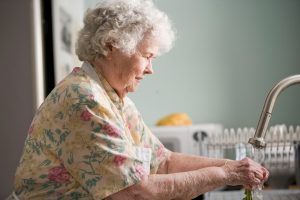 Our career loss creates a void that we can now fill with new endeavors. We can start a brand-new career that isn’t motivated by financial gain but rather by passion. We could write a book, visit India, pick up a musical instrument or a foreign language, or volunteer. As long as we are willing to change, there are many options open to us.
Our career loss creates a void that we can now fill with new endeavors. We can start a brand-new career that isn’t motivated by financial gain but rather by passion. We could write a book, visit India, pick up a musical instrument or a foreign language, or volunteer. As long as we are willing to change, there are many options open to us.
Recovering from a loved one’s loss
We may lose someone we care about, leaving us feeling the loss in many ways. We lose the person, our relationship with them, our way of being with them, their assistance, our plans with them, and other things all at once when a loved one passes away. When we are open to seeing it, there is also opportunity.
Loss provides the chance to strengthen existing relationships or develop new ones when we lose someone we love. By taking proactive steps to make up for our losses, we develop resilience. Not because we didn’t truly love them or miss them, but rather because we still value living the best life possible, and good people are necessary for a good life to exist.
Two things we must do to replace the loss of someone we loved are allowing ourselves to grieve completely and letting go of the notion that we will find someone who can exactly fill our loved one’s shoes in the same way. We must examine and accept our needs while also being open to helping others. As we navigate the future, we should practice patience and compassion for ourselves.
Seeing loss as a gift
Can loss be a gift? It is if doing so teaches us to appreciate the present and to live and love fully in the awareness that we might not get another chance. Loss can be beneficial if we understand the lessons it imparts.
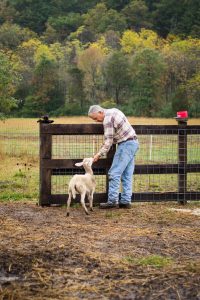 Every moment counts.
Every moment counts.- Material possessions are ultimately unimportant.
- We are not defined by what we possess or lack.
Loss can be a catalyst for meeting new people, trying new things, and finding new ways to get the approval and love we crave. Loss can also increase our capacity for empathy, love, and compassion. Loss aids us in letting go of false and unhelpful things and leads us to our truest, best selves by demonstrating to us what is important and what isn’t.
Therapy for geriatric issues
Therapy can assist older adults who may be struggling with aging transitions to better manage their emotions, discover new interests and meanings, and establish new social networks. If someone has any fears about dying, it can help them face those fears and help them cope with their grief when friends and family pass away.
As it can help them deal with their emotions, communication support is beneficial, especially if an elder has some form of dementia. Community resources, and family or individual therapy can also help family members who may be caring for their senior relatives.
Depression and anxiety are two possible diagnoses related to aging. Although treatment may be able to help treat some of the symptoms associated with dementia, dementia is technically a medical diagnosis rather than a mental one.
Because people are living longer than they did in the past, older adults may now be more likely than they were in the past to start therapy later in life. 60-year-olds typically have 15 or 20 years left in their lives, and the transitory period that many people experience at this stage of life may start a process of introspection that prompts many elderly people to seek therapy.
Help is available for coping with loss
If you are having trouble coping with loss in your life, consider seeking therapy. Trained therapists can help you navigate the loss, grief, and changes in your life. The therapists at Santa Clarita Christian Counseling are here to help.
“Old Hands”, Courtesy of Danie Franco, Unsplash.com, CC0 License; “Checking the Plant”, Courtesy of Cassia Tofano, Unsplash.com, CC0 License; “Washing Up”, Courtesy of CDC, Unsplash.com, CC0 License; “Feeding the Goat”, Courtesy of Zoe Schaeffer, Unsplash.com, CC0 License
-
Kate Motaung: Curator
Kate Motaung is the Senior Writer, Editor, and Content Manager for a multi-state company. She is the author of several books including Letters to Grief, 101 Prayers for Comfort in Difficult Times, and A Place to Land: A Story of Longing and Belonging...
DISCLAIMER: THIS ARTICLE DOES NOT PROVIDE MEDICAL ADVICE
Articles are intended for informational purposes only and do not constitute medical advice; the content is not intended to be a substitute for professional medical advice, diagnosis, or treatment. All opinions expressed by authors and quoted sources are their own and do not necessarily reflect the opinions of the editors, publishers or editorial boards of Stone Oak Christian Counseling. This website does not recommend or endorse any specific tests, physicians, products, procedures, opinions, or other information that may be mentioned on the Site. Reliance on any information provided by this website is solely at your own risk.





